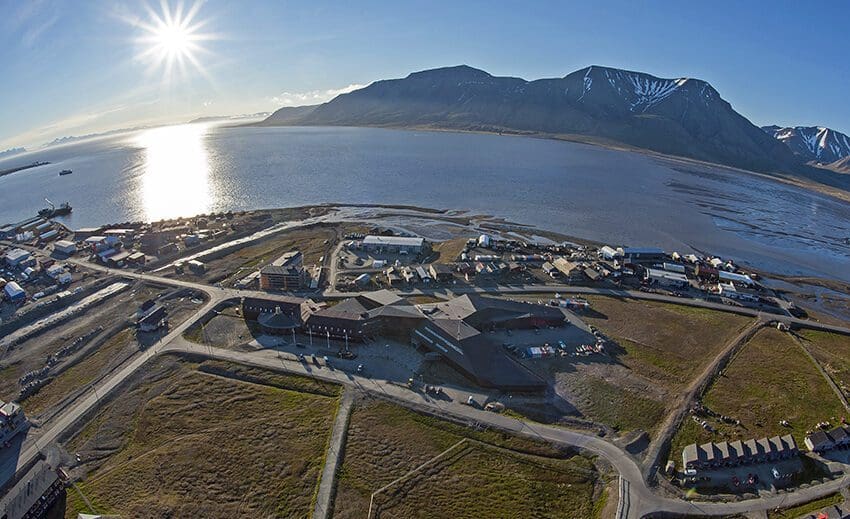UNIS cancels all courses in 2020

Bildet tatt av paraglider Gjermundsen kl. halv tolv om natta, juli 2014.
Photo: Endre Før Gjermundsen/UNIS.
The management at UNIS has carried out a thorough analysis of what “new” normal situation we can aim for this fall. An important element of this analysis has been safety. UNIS will make every effort to ensure that those already present at the institution can be here with minimal risk of Covid-19 infection. UNIS’s corporate social responsibility is also emphasized in this context.
29 April 2020
Text: Director of the Board Morten Hald; director Jøran Moen and HSE director Fred Skancke Hansen, The University Centre in Svalbard (UNIS).
The management has therefore decided that no ordinary admission to any scheduled courses for summer and autumn 2020 will be conducted. In other words, these courses are cancelled. The main emphasis for the remainder of 2020 will be to attend to the students and staff already at UNIS today, as well as the admission of a small number of individual students (guest master- and guest PhD students) who may come to Svalbard and perform fieldwork for their theses in a safe manner.
The risk of Covid-19 infection is kept at such a low level that it is likely that we can keep UNIS open throughout the fall semester. This will enable us to continue our research activities and mentoring graduate and post-graduate individual students who are developing a research career at UNIS, as well as carrying out important development tasks at the institution.
UNIS manages a portfolio of research projects of about NOK 40 million in 2020. We will do our very best to ensure progress on our research deliveries. The same applies to securing long time series with observations for monitoring climate, environment and natural hazards. This must be done within infection protection measures at any given time.
We will strengthen our HSE work with a health care worker in a one-year temporary position to ensure training in – and compliance with – infection protection measures, and to provide training and follow-up for staff and students. As long as we have no Covid-19 infection on the island, the room for manoeuvre is greater than what we utilize today. Opportunities for switching between home office and work office in the Svalbard Science Centre will be assessed on an ongoing basis. This assessment becomes possible with a professional health worker at the institution.
Despite these challenging times, UNIS will continue to contribute to important education in -and research on – Arctic conditions in the year ahead. And we will continue to contribute to the social development of Longyearbyen and Svalbard in line with the overall goals of Norwegian Svalbard policy. Among other things, we will further develop the Arctic Safety Centre so that we can offer relevant education in Arctic safety, practical courses for the local business community and be a competence centre for the local community in Longyearbyen.
And when we have put behind us all the challenges we now face, we have all become effective users of digital meeting places, which will save a great deal of time and improve the quality of life for busy families and contribute to a better climate with less travel activity.